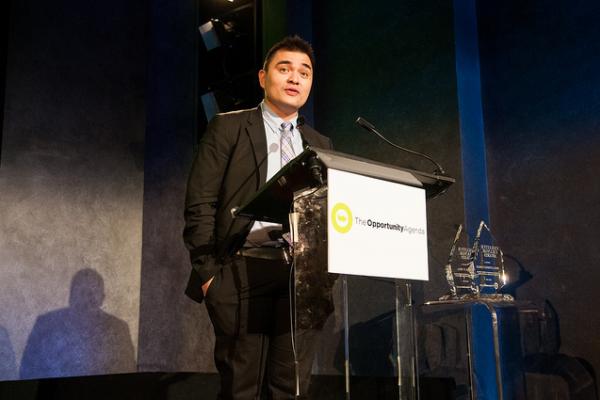Last week, I attended a screening of Documented, Jose Antonio Vargas’ film about his coming out as an undocumented immigrant after winning the Pulitzer Prize. His journey is honest, poignant, and humorous. A lesser subject would have cut some of the material showing the strain of the situation on his familial relations, but the film never flinches from the raw story.
I sat in on a panel discussion after the screening filled with members of an organization featured in the film, “DREAMers Moms.” I had a chance to speak with several of them, and one story stuck out in particular. One mom left her country for the good of her children so they would have hope of a positive future in the United States. She hasn’t seen her mother in 13 years and won’t until immigration reform is passed into law. If she leaves the U.S., it’s likely she wouldn’t be allowed to return and care for her children. This would leave them essentially orphans who would be placed into foster care. Her mother is now in her 80s, frail and sick. This woman is losing hope of ever again touching the woman who cared for her, but still prays daily for a miracle.
Jose mentioned during the panel that a largely untold side effect of being undocumented is the toll that the constant fear of deportation and worry about family has on mental health. As he edited the film, he said, he noticed several points where he was clearly suffering from depression. I asked panelist Gaby Pacheco, an immigration activist and Dreamer who also appeared in the documentary, how she and others she knew developed mental health strategies for coping with anxiety and depression. She said it is vital to find others suffering from similar fears and share stories with them. With a lack of mental health resources for undocumented persons, that communal sharing is a form of therapy. She also voiced a need for mental health services to be included in comprehensive immigration reform.
The documentary will air on CNN, and be screened at film festivals and in theaters. Don’t miss a chance to see this film and encourage others to see this story that humanizes immigration reform. Partisan rhetoric has fueled this issue to a point beyond realism, but this film makes the political intimate and personal. After you see the film, join the discussion at organization, www.defineamerican.com. Address the question, “How do you define American?”
I became passionate about immigration reform a few years ago when working with pastors Javier Benitez and Hector Villanueva at the Cooperative Baptist Fellowship of North Carolina. The two work constantly to protect their parishioners from racial profiling and deportation, especially on Sunday morning when police camp outside entrances to Hispanic churches in order to profile and catch potential undocumented persons on the way to worship. This is intolerable. It is a moral imperative that we find ways to welcome the stranger as Scripture calls us to do. We must listen to immigrant stories and respond appropriately out of love. What does a Christian response to immigration look like in your community?
Rev. Laura Barclay is an author, consultant, and minister. She previously served the Cooperative Baptist Fellowship of North Carolina for five years as the Social Ministries Coordinator. She is now working on a book that will be released by Smyth & Helwys in Spring 2014, titled With Us in the Wilderness: Finding God’s Story in Our Lives. She resides in Louisville, Ky., with her spouse, Rev. Ryan Eller. If you are interested in having her speak or consult on spirituality, social justice or communications issues at your congregation, email her at rev.laurabarclay@gmail.com.
Got something to say about what you're reading? We value your feedback!
